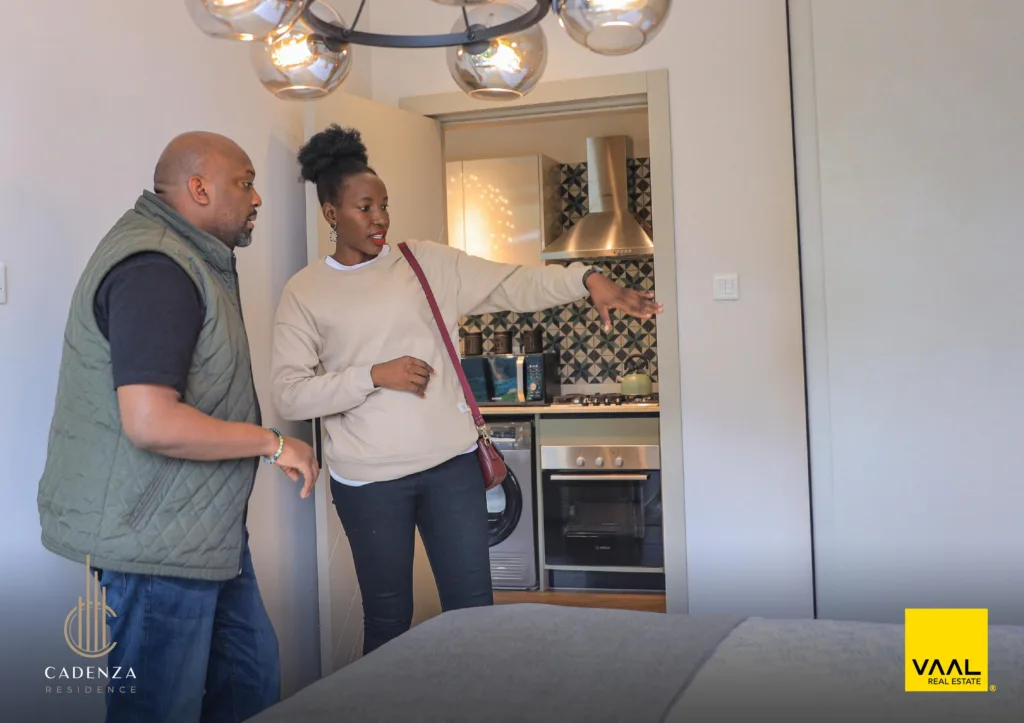Three months ago, we received a phone call that changed how we advise investors concerning selecting a real estate company.
The caller, Dr. Amina Hassan, a surgeon, had just discovered that her “investment property” in what was supposedly one of Kampala’s luxury hotspots didn’t exist. Not as in “construction was delayed.” As in the land the company claimed to own was actually a public cemetery.
Interestingly! Dr. Hassan had done her homework. She’d verified the company’s registration, checked their office location, even spoken to other “satisfied investors.” Everything appeared legitimate because it was designed to appear legitimate.
What she hadn’t done was understand the one thing that separates genuine real estate companies from clever fraudsters: how they actually make their money.
This revelation led our team down a path of investigation that exposed something uncomfortable about the dark side of Uganda’s real estate market.
Most companies that cheat investors don’t start out wanting to cheat anyone. They often begin with good intentions but have business plans that are doomed to fail.
The Rise of the Real Estate Market in Uganda: The Numbers Everyone Misses
While everyone talks about Uganda’s real estate growth, many are looking at the wrong metrics. Yes, the market is expanding, but the most revealing statistic isn’t about growth, it’s about what’s happening in the background.
Since December 2024, 271 cases of investor fraud have been reported to Uganda’s State House Investor Protection Unit, and most of these weren’t classic scams. They were legitimate companies that simply ran out of money halfway through projects.
Kampala’s prime area vacancy rate dropped from 12% to 9% between 2023 and 2024 – but this seemingly positive statistic masks a darker reality. The reduction isn’t entirely due to increased demand; it’s partly because several developments that were supposed to add supply never got completed.
The uncomfortable truth is that Uganda’s real estate boom has created what we call “the sophistication gap.” The market has grown complex enough to require serious expertise and capital, but regulatory oversight hasn’t kept pace. This creates a perfect storm where companies can look professional but don’t actually have what it takes to finish what they promise.
What’s really happening is market evolution disguised as market growth. The companies surviving aren’t necessarily the ones with the best marketing; they’re the ones with the most sustainable business models. And understanding why is what separates successful property investors from people who lose their money.
Companies that looked solid two years ago are quietly disappearing or changing their business completely. The ones remaining are the smart ones who saw what was coming and prepared for it.
Reputation in the Market: The Three-Layer Test
Most investors don’t know this: in Uganda’s real estate market, there are actually three different types of reputation, and only one of them matters for our industry.
Surface Reputation is what most people check; online reviews, social media presence, marketing materials. This stuff is easy to fake and tells you almost nothing about whether a company can actually deliver.
Professional Reputation is what other industry professionals say about a company when they think no one is listening. This is harder to fake but still doesn’t guarantee you won’t lose money.
Financial Reputation is how the company actually structures and protects investor money. Most investors never learn about this, but it’s the only reputation that really matters for your investment safety.
We learned about these different reputation types through careful watching of the market. Two years ago, our team tracked three companies that all had excellent surface and professional reputations. One is now one of East Africa’s fastest-growing real estate firm. The other two don’t exist anymore.
The difference wasn’t in their marketing, their projects, or even their experience. It was in how they structured their operations to protect investor capital during unexpected challenges. The surviving company had what finance professionals call “recession-proof revenue streams” – they made money whether projects were completed on time or faced delays.
THE TEST: Ask any company how they get paid during a project. Weak companies make most of their money from initial sales when people first buy. Strong companies have multiple ways of making money that connect their success to actually completing projects and keeping investors happy.
Through our twenty years in the market, we’ve observed that sophisticated evaluation means investigating a company’s banking relationships, construction partnerships, and legal structure.
Companies with sustainable business models keep long-term relationships with several banks, work with established construction companies on multiple projects, and set up deals to protect investor money even when problems happen.
Real Estate for Ownership.
Most people choosing a company to help them buy their own home make a big mistake: they focus on the wrong thing.
They focus on finding a company that can help them buy the property they want, when they should focus on finding a company that will prevent them from buying the wrong property entirely.
The best real estate companies for homeownership aren’t the ones that make buying easy; they’re the ones that make buying difficult by asking uncomfortable questions about your decision.
A sophisticated company will challenge your location choice, question whether you’ve thought about all the ongoing costs, and sometimes tell you not to buy properties you initially wanted. This isn’t because they want to lose sales; it’s because they know that happy long-term clients are worth more than quick sales.
The counterintuitive reality is that companies that push you to make quick decisions are usually the ones you should avoid when buying your own home. Owning property in Uganda comes with challenges that don’t show up in beautiful marketing materials: delays in getting electricity and water connected, security issues, complicated maintenance, and possible community fees.
The best companies for homeownership know that their reputation depends on how happy you are five years after buying, not five minutes after signing papers. They make money through long-term relationships, referrals from satisfied clients, and repeat business, which means they need to make sure buying property actually makes your life better.
THE TEST: Ask potential companies about the biggest mistakes they see homebuyers make. Companies focused on making sales will downplay problems. Companies focused on client success will give you a detailed list of problems to avoid and explain how they help prevent each one.
Real Estate for Investment.
Real estate companies that focus on investment properties have a dirty secret: most of them don’t actually understand investment mathematics.
They can calculate projected rental yields, estimate appreciation rates, and create impressive financial projections. But they miss the most critical calculation of all: the probability-weighted return adjusted for execution risk.
Let us explain with an example that changed how we look at investment companies forever.
Our team analyzed two companies presenting similar projects with projected 15% annual returns. Company A showed detailed analysis of rental markets, construction timelines, and tenant projections. Company B showed the same analysis plus something extra: a breakdown of how likely each assumption was to fail and what the financial impact would be if problems happened.
Company A’s projections assumed everything would go according to plan. Company B’s projections assumed multiple things would go wrong and showed how they’d still deliver good returns despite problems.
The results? Company A delivered 8% returns after dealing with unforeseen delays and cost overruns. Company B delivered 14% returns despite facing similar challenges.
Through our two decades in the market, we’ve seen that smart companies don’t just predict what could happen, they build solutions for what will probably go wrong. They structure deals with backup plans, keep reserve money for unexpected costs, and have established procedures for handling construction delays, tenant problems, and market changes.
The mathematical reality is that investment success depends more on protecting against losses than maximizing gains. Companies that focus primarily on projected returns usually disappoint. Companies that focus on risk mitigation usually exceed expectations.
THE TEST: Ask any investment-focused company to show you their worst-performing project and explain what went wrong. Amateur companies will either claim they don’t have any or blame external factors. Professional companies will walk you through specific problems and demonstrate the systems they’ve built to prevent similar issues.
VAAL is Your Real Estate Company of Choice: The Proof Is in the Problems

After everything we’ve shared about what separates lasting companies from those that disappear, you might wonder how any company proves they belong in the first category.
The answer isn’t in showing you their successes – it’s in showing you how they’ve handled their problems.
At VAAL Real Estate, we’ve faced every challenge that typically destroys real estate companies. Construction delays due to permit complications. Economic uncertainty affecting buyer financing. Market changes that required project modifications. Supplier issues that threatened timelines.
The difference is that we’ve built our business around these realities instead of pretending they don’t exist.
Our projects include contingency timelines that account for typical delays. Our construction partnerships span multiple companies to prevent single-point failures. Our legal framework provides clear resolution processes for any problems that arise.
Most importantly, our revenue model aligns our success with investor success. We make money when projects are completed successfully and investors achieve projected returns. This isn’t altruism, it’s smart business design that creates sustainable operations.
The Cadenza Residence project demonstrates this approach practically. Rather than rushing to build and complete with conceptual renderings, we built a complete showhouse alongside. . Investors can check construction quality, test how things work, and examine finishes before putting down money. What you see in our showhouse is exactly what you’ll get because we’ve already built it once.

Our 20-year track record across 2,000+ property investments isn’t remarkable because we’ve avoided problems; it’s because we’ve systematically solved problems in ways that protect investor interests.
The most revealing aspect of our approach is what we don’t do. We don’t make unrealistic timeline promises, don’t hide potential risks in complex legal language, and don’t structure deals that transfer excessive risk to investors. We succeed by making conservative commitments and exceeding them consistently.
The choice of a real estate company ultimately determines whether you’re buying property or buying problems. The sophisticated difference is working with a company that’s already solved the problems before they affect you.
VAAL Real Estate represents the evolution of real estate companies, from sales-focused organizations to investor-success-focused partners. We invite you to visit our showhouse, have a meeting with our property consultants and internal team, and evaluate our problem-solving approach for yourself.
Your investment deserves a company that’s engineered for your success, not just engineered for impressive marketing.